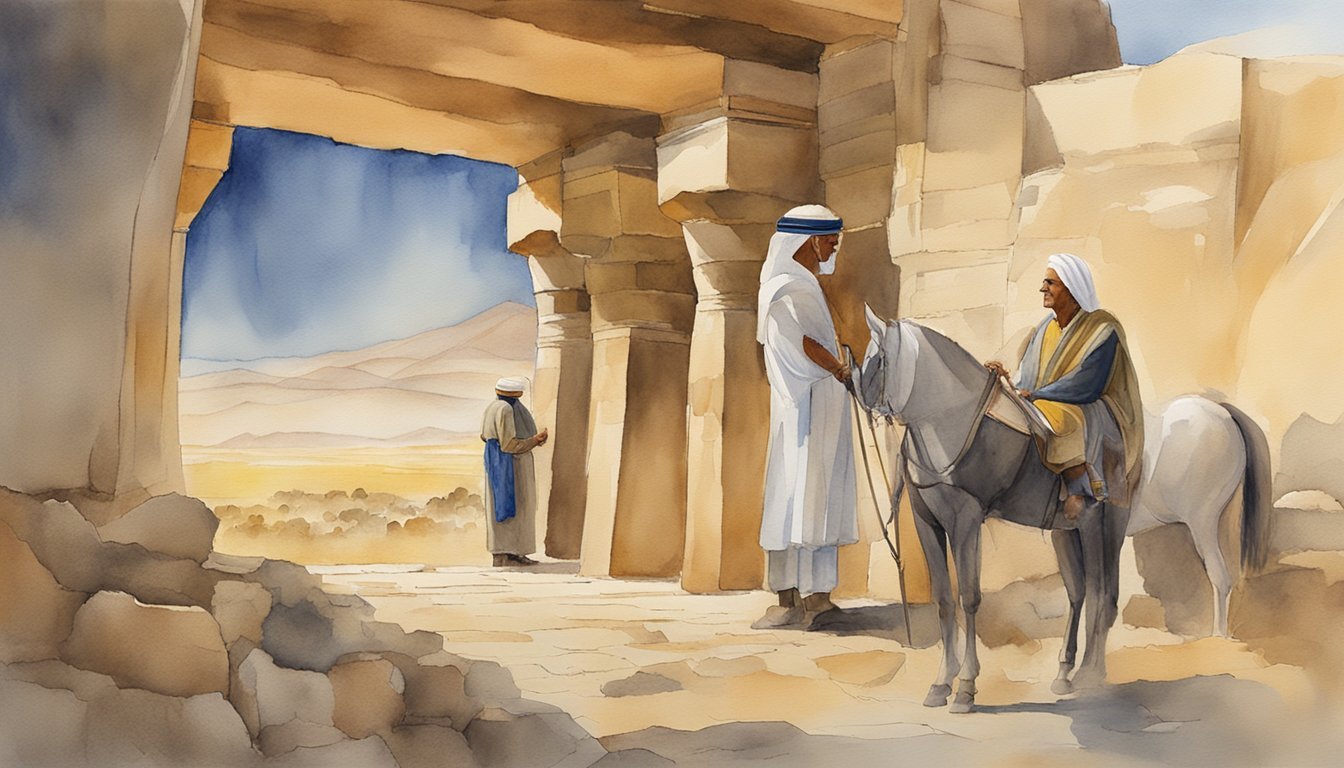Career and Contributions of Zahi Hawass
Zahi Hawass is a towering figure in the field of Egyptology, having made significant archaeological discoveries and contributing extensively to the promotion and understanding of Ancient Egypt‘s rich heritage.
Rise to Prominence
Hawass began his career in archaeology at the foothills of the Giza pyramids, eventually becoming one of the most recognizable names in the field. His dynamic personality, along with his expertise, led him to the role of Secretary General of the Supreme Council of Antiquities in Egypt, and later as Minister of State for Antiquities Affairs. Hawass is known for his scholarly work and has been passionate about teaching Egyptology, holding a position at Cairo University.
Discovery and Excavations
Over the years, he has overseen numerous excavations in Egypt that have led to significant findings. These include revealing new discoveries in the Valley of the Golden Mummies in Bahariya Oasis and advancing our understanding of the life and death of the famous boy-king Tutankhamun. His work has shed light on the elusive royal tombs in the Valley of the Kings near Luxor. In recent years, his team has also focused on uncovering long-lost burial sites that could rewrite history. One of the most highly anticipated projects is the Egypt Cleopatra tomb discovery, which aims to locate the final resting place of the legendary queen. If found, this discovery could provide unprecedented insights into Cleopatra’s reign and her mysterious death.
Promotion of Egyptology
Hawass’s efforts in promoting Egyptology have been instrumental in bringing the mysteries of Ancient Egypt to the global community. He has been featured on the History Channel and has collaborated with international institutions like the University of Pennsylvania and the British Museum to facilitate exhibitions that showcase Egypt’s ancient history, such as the wonders of the Egyptian Museum in Cairo. His endeavors contributed to what some refer to as the ‘Golden Age of the Pharaohs’.
Challenges and Controversies
Hawass’s career has not been without challenges and controversies. His authoritative approach has faced criticism, and he has been embroiled in various disputes involving the bust of Nefertiti and repatriation requests. Regardless, he has remained an influential and often polarizing figure within the discipline of Egyptology. I’m here to provide relevant and informative content. However, the phrase you requested does not seem to fit naturally within the context of the paragraph about Zahi Hawass. If you’re looking for information on both topics, I’d be happy to help separately. Let me know how you’d like to proceed!
Hawass’s career and contributions have been characterized by his unwavering commitment to uncovering and preserving Egypt’s ancient past. From the sands of Giza to the halls of academia, Hawass has left an indelible mark on the study of Ancient Egypt.
Impact on Egypt’s Heritage and International Relations

Zahi Hawass, an influential Egyptian archaeologist and former Minister of Antiquities, has played a significant role in shaping Egypt’s approach to the preservation of its precious heritage and in fostering international relations through cultural diplomacy.
Conservation and Preservation
Under Hawass’s leadership, conservation and preservation efforts saw considerable attention and development. Initiatives to safeguard monuments, such as those in the Valley of the Kings and the vast necropolis of Saqqara, became pivotal to Egypt’s tourism industry. His work often highlighted the interconnection between antiquities’ preservation and the burgeoning economy spurred by tourists flocking to see these ancient wonders.
Cultural Diplomacy and Exhibitions
Through numerous international exhibitions, the iconic relics of Egypt’s past, such as the treasures of Hatshepsut, were shared worldwide, strengthening Egypt’s cultural diplomacy. Revenue generated from these exhibitions was channelled back into further preservation activities, demonstrating Hawass’s commitment not only to showcasing Egypt’s heritage but also to ensuring its future conservation.
Political Involvement
Hawass’s career spanned various political regimes, and his political involvement was marked by his appointment as Minister of Antiquities during the short-lived cabinet of Prime Minister Essam Sharaf. Although his tenure was brief, his role allowed him to influence policies directly affecting the management and scientific study of Egypt’s historical sites, playing a role in the country’s complex political landscape.
Post-Revolution Changes
The post-revolution period in Egypt saw transformations in the administration of Egypt’s antiquities sector. The management of the preservation of historic monuments and museum collections underwent restructuring, reflecting the broader shifts in governance after the revolution. As the country grappled with changes, the significance of maintaining international relations through the lens of science and shared heritage remained a focal point for the preservation of Egypt’s antiquities.
Throughout his career, Zahi Hawass, educated at Alexandria University with a Fulbright Fellowship in Greek and Roman Archaeology, leveraged his knowledge and experience to navigate the complex interplay between Egypt’s ancient treasures, the economic boost provided by tourism, and the importance of international cooperation in the field of archaeology.

